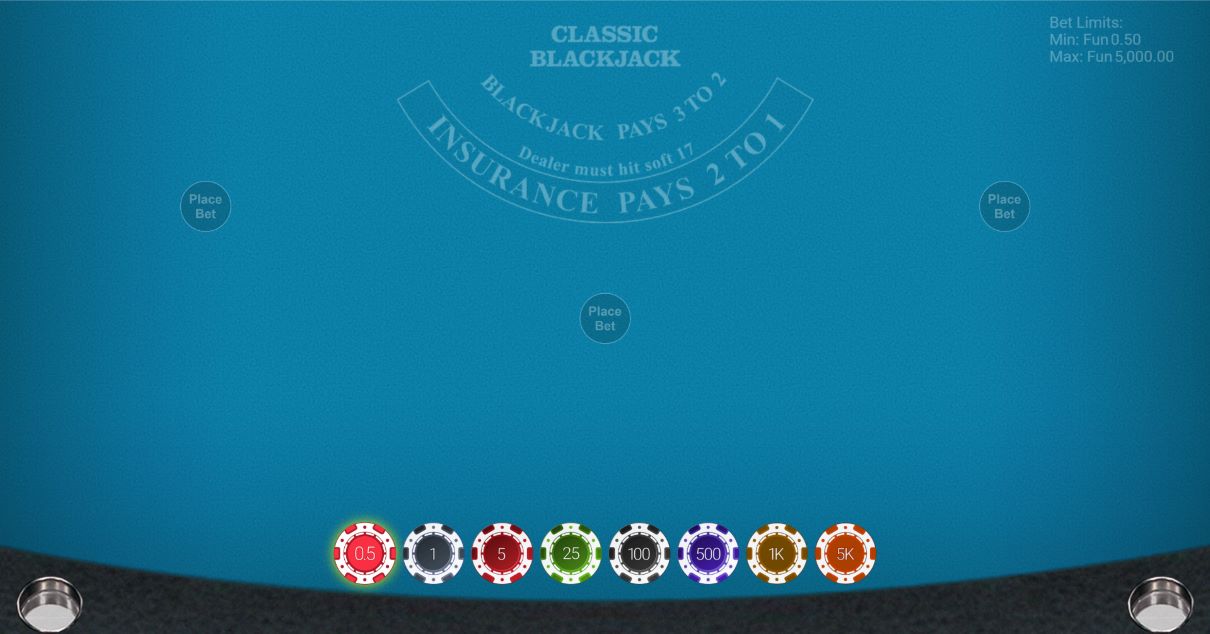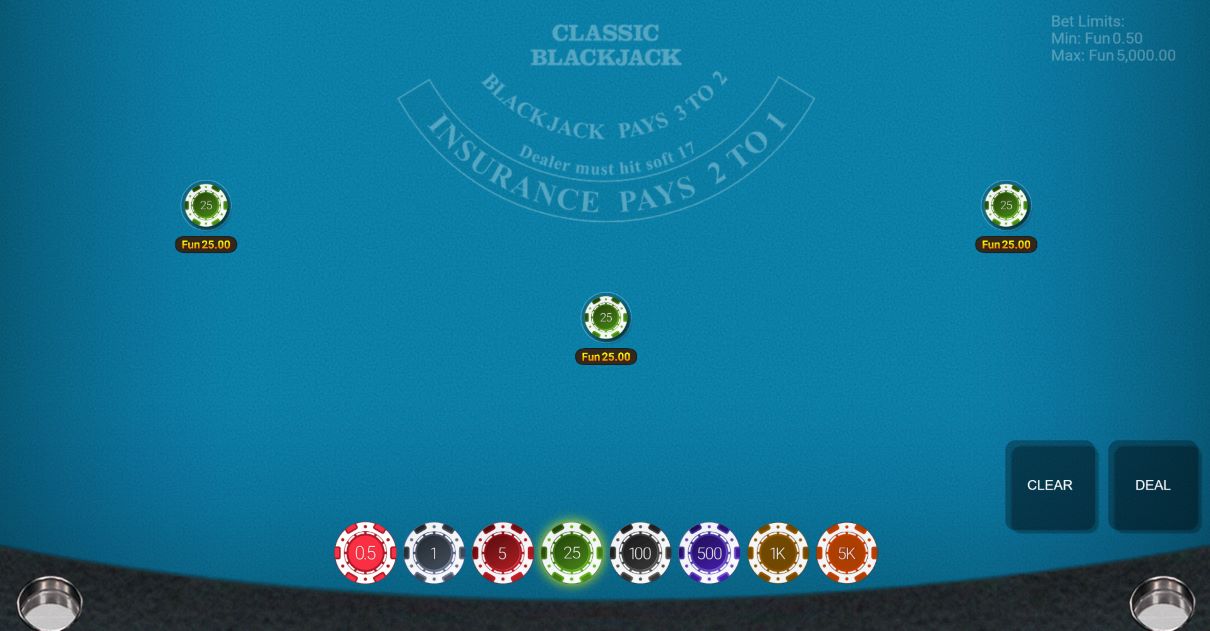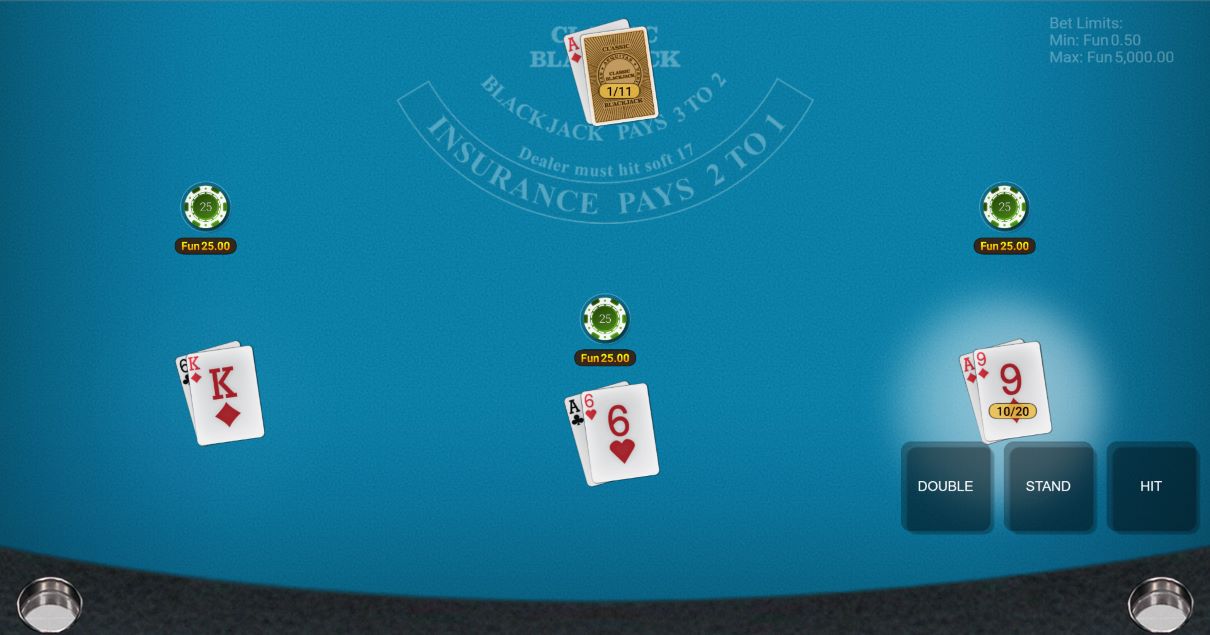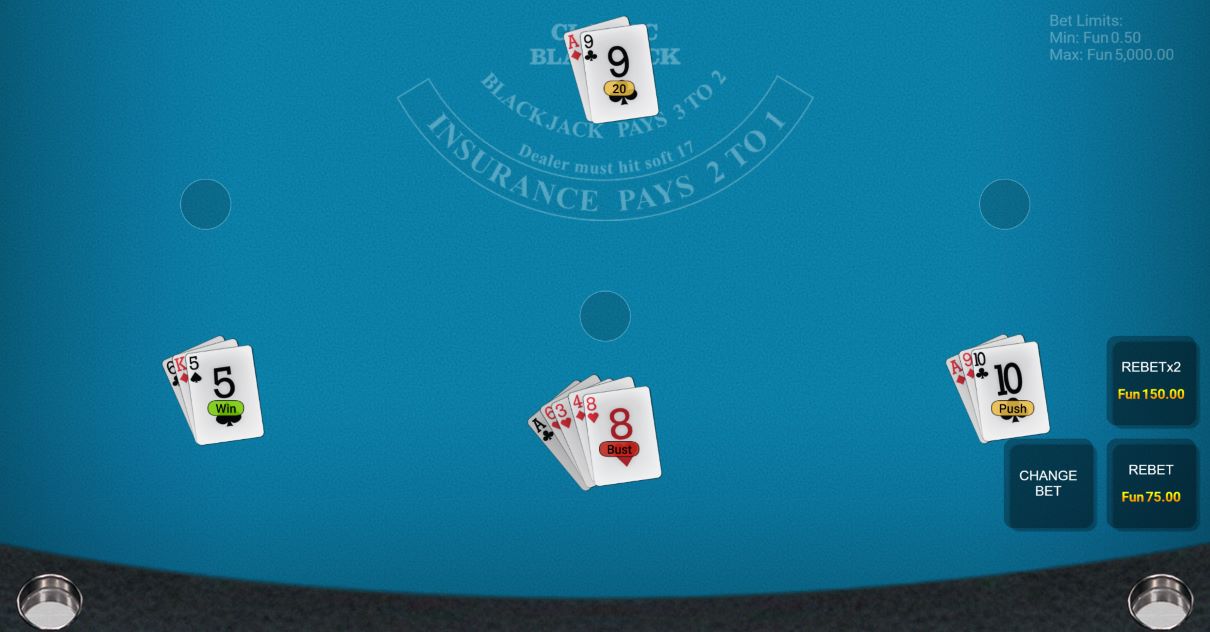Blackjack Rules – How To Play Blackjack Guide for 2026
Understanding blackjack rules makes playing the game much easier and a lot more fun. It also allows you to improve your game overall and place bets with a greater chance of success. In this guide, we introduce you to the rules of blackjack, from the basics to card values to strategies, key blackjack terms and what to avoid.
What is Blackjack?
The best place to start is by understanding blackjack and its basic premise. Blackjack is a card game offered by land-based and online casinos. Since you play blackjack against the house (dealer), we refer to it as a banked card game.
When playing blackjack, your aim is the be the player with the hand valued as close to 21 as possible. However, if the dealer’s hand is closer to 21 or the value of your hand exceeds 21, you lose.
Blackjack comes in several variations, including Perfect Pairs, 7-Card Blackjack, Pirate 21, American Blackjack, and European Blackjack. You can find all of these at the best blackjack casinos. While these variations all have slight differences in their blackjack rules, they all follow the same basic principles.
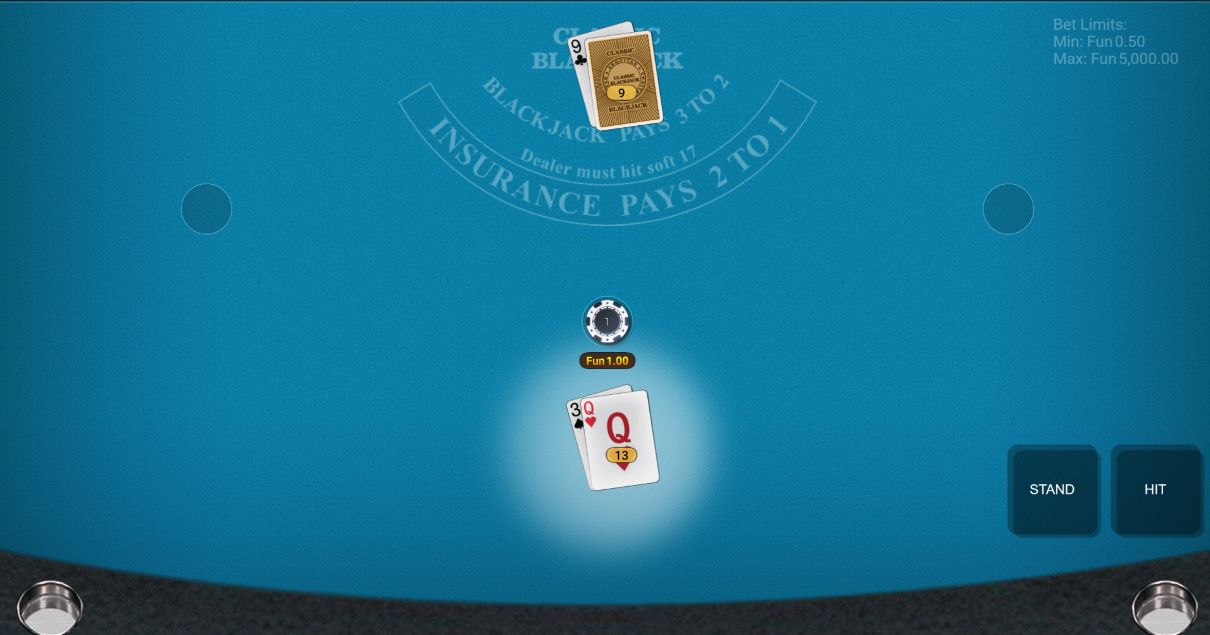
Basic Blackjack Rules
The blackjack card game rules are fairly straightforward. In blackjack, the objective of the game is to get your hand closer to a total of 21 than the dealer’s.
Usually, as per basic blackjack rules, the croupier deals the cards. Players are dealt two cards and so is the dealer. While both of the player’s cards are placed up, the dealer has one card face up and one face down. Before the dealer reveals their hole card (the one that is face down) players can choose to stand (keep your cards as is) or hit (receive another card.) When they’re done, the dealer reveals their hole card and the card totals are compared..
There are several outcomes here as dictated by casino blackjack rules:
- Blackjack – Your first two cards are an Ace and a card with a value of 10. This gives you a hand of 21, which we refer to as blackjack, and constitutes an outright win.
- Higher Hand Value than the Dealer – Here, the value of your hand is higher than that of the dealer, meaning you win the game. For instance, your hand has a value of 19 (Jack and a nine), and the dealer has a value of 18 (Ace and a seven).
- Lower Hand Value than the Dealer – In this case, your hand has a lesser value than that of the dealer, giving it a hand closer to 21. If this happens, you have lost that round.
- Dealer Busts – The dealer’s hand has a higher total than 21. In this case, you win.
- Bust – Here, your hand value is more than 21, which means you lose the round.
- Push – When your hand has the same value as that of the dealer (tie), we refer to it as a push. When this happens your original stake is returned to you.
7 Card Blackjack Rules
British Blackjack is also referred to as 7 Card Blackjack. 7 Card Blackjack rules differ from classic blackjack rules, as does the aim of the game. In traditional blackjack, you receive two cards with the option to receive more, with the aim of getting your hand as close to 21 as possible and beating the dealer.
However, British Blackjack rules are different. The game is typically played with four players. Here, the dealer gives each player seven cards, and the aim is to get your card to match the card the previous player puts down. You can match this card in value or suit. If you cannot match the card, the blackjack rules (7 card UK) state that you must pick up another card. The player who discards all of their cards first wins.
The basic UK blackjack rules are as follows:
- There must be four players.
- The croupier deals seven cards to each player.
- One upcard is placed in the middle of the table.
- You must match your card with the upright card on the table.
- You may match the card by suit or value.
- If you cannot match the card, you must pick up another card.
- The first player to discard all of their cards wins.
- Jacks can go on 2s ( you can stack a Jack on a two).
- Any card of a matching suit may be played after a Queen.
- Blackjack rules in the UK say 8 miss a go; in other words, if you put down an 8, the next player must miss a turn.
The following blackjack rules chart highlights the key differences between British and American Blackjack:
| Blackjack 21 Rules | Blackjack Rules 7 Cards | |
| Number of players | 2 to 7 players | 4 players |
| Number of cards dealt | 2 | 7 |
| Play Against | The dealer (house) | Other players |
| Gameplay | To get your hand to reach a value of as close to 21 as possible without going over. | To get your card to match the last player’s upcard by suit or value. |
| Win | When your hand is closer in value to 21 than the dealer’s | When you’re the first to discard all of your cards |
Blackjack Hand Values
While the blackjack UK rules dictate that you must focus not on the colour of the card but rather on its value or suite, classic blackjack rules state that different cards have unique values. The blackjack rules for card values state:
| Card | Value |
| Ace | 1 or 11 (based on what works best for you) |
| Face Cards (Jack, Queen, King) | Each has a value of 10 |
| Numbered Cards (2-10) | Assigned their face value. For example, a 9 of spades is worth 9 points. |
How To Play Blackjack
Now that we have an understanding of the blackjack card rules let’s look at how to play. The following steps outline a round of blackjack from start to finish so you can see the rules for blackjack in play.
Open a Blackjack Game
Sign in to your online casino account and search for blackjack games. Then, select the game you want to play by clicking it. Wait for the game to load.Choose Your Bet Value, Buy Chips, and Place Bets
Now, you’ll need to “purchase” chips from the dealer. These chips come in different denominations. However, to buy these, you’ll need to have deposited funds into your casino account. You can also claim the best casino bonuses, which will allow you to buy even more chips. Once you have decided on and bought your chips, you can place your bets. Make sure your bet value is within the limits of the game (£0.50 – £5,000 for our example). Place your bet by selecting your chip value and then clicking on the area marked “Place Bet.” You can opt to bet on a single hand or on three simultaneous hands by placing a chip in each section.Play Your Hand
Once you have placed your bets, you can hit the “Deal” button. The dealer will then deal out two cards for each hand you have in the game and then deal their own cards. However, while both of your cards sit face up, the dealer has one card face up and one face down (hole card.) Once the croupier has dealt the cards, you have several ways to play your hand. You can learn more about these below.The Dealer Reveals Their Hole Card
Once you have completed your turn, it is now the dealer’s turn. Here, the dealer checks their face-down card (hole card) to show the total of their hand. Blackjack dealer rules dictate that if the dealer’s hand has a value of less than 16, they must hit. However, if their hand is equal to or higher than 17, they must stand and complete their play. In some variations, the blackjack rules say the dealer must hit on a soft 17 (when an Ace makes up their hand.)Seeing Who Wins
Now that the dealer has revealed their hand and taken their turn, you can see the outcome of the game. According to blackjack casino rules, if your hand is higher than that of the dealer or you have a natural blackjack, you win. A typical payout is paid at 1:1 unless you get blackjack (Ace + 10), which features a payout of 2:1 or 3:2, depending on which variant you’re playing. If the dealer has a higher hand value closer to 21 than you or your hand value exceeds 21, you lose. If your cards and the dealers’ cards have the same value, a push (tie) occurs, and the dealer will return your original bet to you as there is no winner.
Blackjack Bets
Part of understanding the blackjack rules is knowing what types of bets you can place. The typical blackjack bet is straightforward and requires you to bet on yourself. Motions you can take when playing your hand following simple blackjack rules include:
Hit
If your hand value is low, the blackjack card rules say you can draw another card to try to boost your hand value.
Stand
If your hand value is fairly high and you think you have a good chance of beating the dealer, you can choose to stand – leave your hand as is without drawing another card.
Double
You choose to double your bet and receive an additional card. However, after choosing this option, you cannot then make a further move. Blackjack betting rules also outline that you may only pick this option if your initial hand is a hard 9, 10, or 11.
Split
Blackjack spilt rules allow you to split your hand into two separate hands in the event that your initial two cards are two of a kind. For example, if you receive two 4s. However, blackjack rules also state that you must then double your bet to account for your new additional hand.
Surrender
In some cases, blackjack game rules may offer the option to surrender. If you receive a poor initial hand, you may choose to leave the game and receive back half of your initial bet.
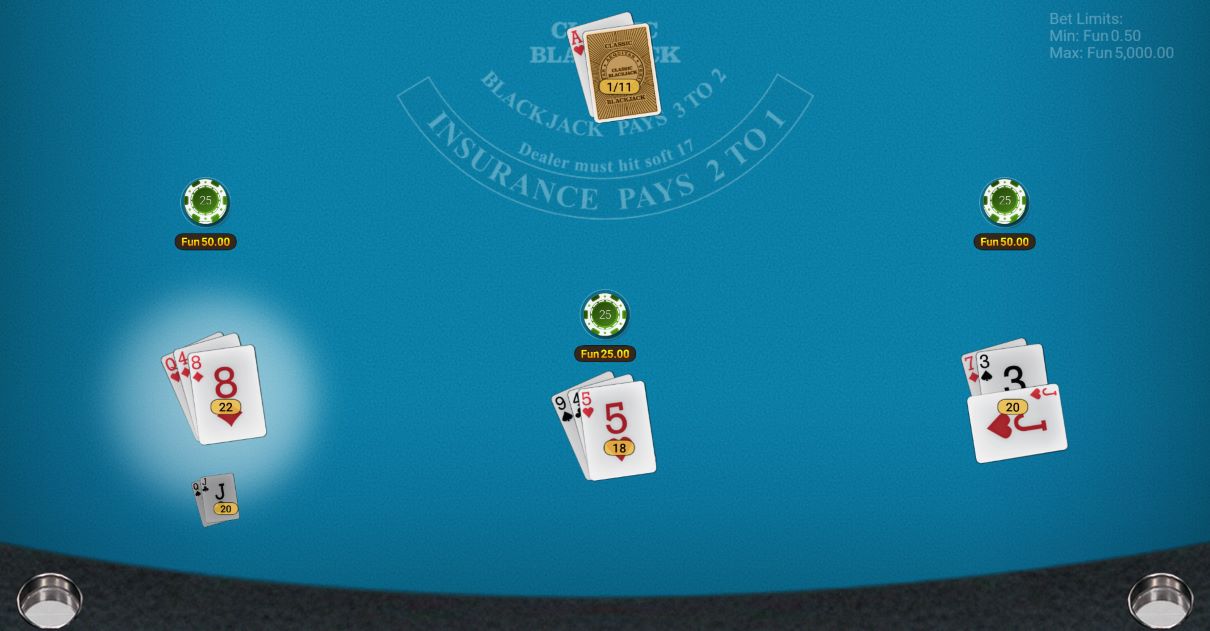
Blackjack Side Bets
In addition to playing a straight game of blackjack, different variations offer unique blackjack rules and additional bets called side bets. These side bets may include:
Insurance
This is only offered in the case where the dealer has an Ace. Here, as basic strategy, you can take additional insurance up to the value of half your original stake. In the event that the dealer lands a natural blackjack, your insurance bet will payout 2:1.
Perfect Pairs
Some blackjack rules include the option to place a perfect pair side bet. This wager focuses solely on your hand. In the event that your initial hand is a pair and you have wagered this bet, you will receive a payout as follows:
- Perfect pair (two of the exact same card – same suit and colour): pays 25:1
- Coloured pair (two cards with the same value and the same colour): pays 12:1
- Mixed pair (two cards with the same value but different suits and colours): pays 5:1
21+3
This side bet takes into account your two cards and the dealer’s up card. If, on the initial deal, your two cards plus the dealer’s face-up card match any of these combinations, you’ll receive a payout:
- Flush (all cards come from the same suit) – pays 5:1
- Straight (all cards in a consecutive numeric order such as 6,7,8) – pays 10:1
- Three of a kind (all three cards have the same value but not the same suit) – pays 30:1
- Straight flush (three consecutive cards all of the same suit) – pays 40:1
- Suited triple (three cards of the same suit and value, for instance, 3x three of clubs) – pays 100:1
Blackjack House Edge and Odds
The rules of blackjack in the UK and across the globe also include aspects of the game such as house edge and blackjack odds.
House Edge
The house edge in blackjack refers to the odds the casino has over its players and outlines the commission the casino takes from your initial bet. Online casinos use the blackjack rules to determine the house edge they apply. As such, the house edge and odds of different blackjack variations differ slightly.
However, blackjack has one of the lowest house edges, making it a highly profitable game with exciting odds.
Odds
Blackjack odds represent the amount you’ll receive in payouts on that particular bet. At the best casinos in the UK, odds for blackjack are often displayed as fractional figures (3:2). Here, the number on the right represents your bet value, while the number on the left highlights your winnings.
For example, using the blackjack odds of 3:2, the three show how much you’ll win, and the two represent the bet you place. So, for every £2 you wager and win, you’ll earn back £3.
The table below highlights the odds and house edge offered by the various blackjack games you can play at an online casino:
| Blackjack Variation | Odds | House Edge |
| American/Classic Blackjack | 3:2 | 0.61% |
| European Blackjack | 3:2 | 0.39% |
| Switch Blackjack | 1:1 | 0.58% |
| Face Up 21 | 1:1 | 0.85% |
| Free Bet | 3:2 | 1% |
| Online – Video Blackjack | 1:1 or 3:2 | 0.5% and 2% |
| Online – Live Dealer Blackjack | 3:2 | 0.49% and 0.72% |
Basic Blackjack Strategy
Once you’ve got your head around the blackjack rules and card game as a whole, there are several top blackjack strategies that you can implement. These can run fairly in-depth, but here is an overview of what these strategies involve:
- Stand on 17+ – This is the ultimate blackjack strategy. The idea here is that you stand on a hard 17 (no Ace in your hand), as a hit will likely cause a bust since there are more cards with a value over 4 for you to draw.
- Never Split on 10s – Two tens equal 20, your chances of getting a hand as close to 21 by splitting is minimal. As such, never split a hand with two 10s.
- Double Down on a Hard 11 – If you’re dealt an initial hand with a hard 11 (no Ace), always double down.
- Stand on 12 if the Dealer has a 4, 5, or 6 – If your initial hand results in a value of 12 and the dealer’s upcard is 4, 5, or 6, the best move is to stand.
- Stand on 13, 14, 15, or 16 – It is also best to stand in a case where your initial hand has a value of 13-16 and the dealer has an upcard with a value of 2 to 6.
- Hit if You Receive an Ace and a Seven – An Ace holds the value of a 1 or 11. As such, if you receive an Ace and a 7, and the dealer has an upcard of 8 or more, choose to hit.
- Split if You Have Aces or Eights – Always split if your initial hand lands a double ace or a double eight.
- Consider Using Betting Strategies – Using the Martingale system or similar betting strategies can help you decide how much to wager based on mathematical principles.
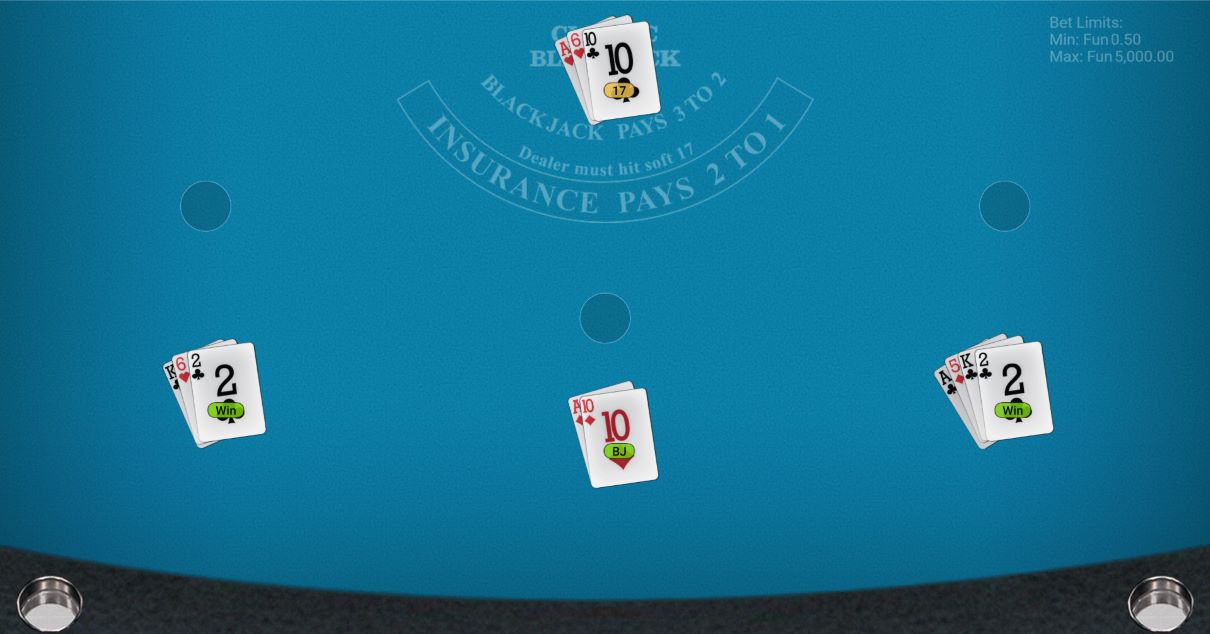
Learning blackjack game rules is much simpler if you have a good knowledge of the various terms used in the game. Below, we introduce you to the most common terms you’ll come across when learning the rules of blackjack at a UK casino online. Playing at the best blackjack sites can be a lot of fun. Below, we offer you several tips for playing at these sites that allow you to play safely and enjoy your online gambling experience further: When playing blackjack online, it can be easy to make mistakes that can end up costing you your winnings. Below, we cover some of the most commonly-made errors that UK players make so you know what to avoid: The biggest rookie error you can make as a player visiting new online casinos to play this card game is not learning the blackjack rules. Understanding the rules of blackjack will help you make more informed decisions when it comes to hitting, standing, doubling down, and splitting, in turn leading to greater chances of winning. Side bets offer an extra way to earn more from your blackjack game. Additionally, even if you don’t win straight up, you can always win from your side bet. These wagers are quick and easy to place and come with lucrative payouts. Many bonuses offered by online casinos may be applied to blackjack games. These rewards add to your bankroll, allowing you to place more bets and try out your knowledge of the blackjack rules. Some of the best live casinos also offer exciting ongoing promos that apply to live dealer blackjack games, which you can pick up and use to your advantage. If you receive a hard 17 (a hand without an Ace present that equals 17), always opt to stand. If you consider the cards in a deck, there are more cards with a value of greater than four than those with a value of less than four. In other words, your chances of drawing a card that will cause you to bust are far over 50% – making hitting on a hard 17 a risk not worth taking. Most new blackjack players see a double card in their initial hand and their minds automatically go to the idea of splitting. While in most instances, this is the preferred route to take, it isn’t so when you land two tens. A hand with two 10s gives you a value of 20, which significantly increases your chances of beating the dealer. However, using the blackjack split rules for this hand drastically diminishes your chances of winning. Blackjack rules are straightforward, making them quick and easy to follow. A firm understanding of the basic rules of blackjack makes the game easier to play, improves your online blackjack experience, and significantly boosts your chances of winning your bets. Affiliate Disclosure: SafestCasinoSites.co.uk may earn commissions from advertising and affiliate links when you visit a recommended gambling site through one of our articles or guides. This comes at no cost to you and you can rest assured that our commercial and editorial teams work independently of one another to ensure impartiality. Please remember that gambling can lead to addiction, and you should gamble responsibly and only join sites if you meet the minimum gambling age. Blackjack Terms
Top 5 Online Blackjack Tips
Common Mistakes To Avoid
Not Learning the Blackjack Rules
Forgetting to Place Side Bets
Not Claiming a Casino Bonus
Hitting on a Hard 17
Splitting 10s
Final Thoughts
FAQs
Is blackjack a game of skill or chance?
What is the best bet to make in blackjack as a beginner?
How does blackjack work?
What is the difference between British Blackjack and American Blackjack?
Resources

